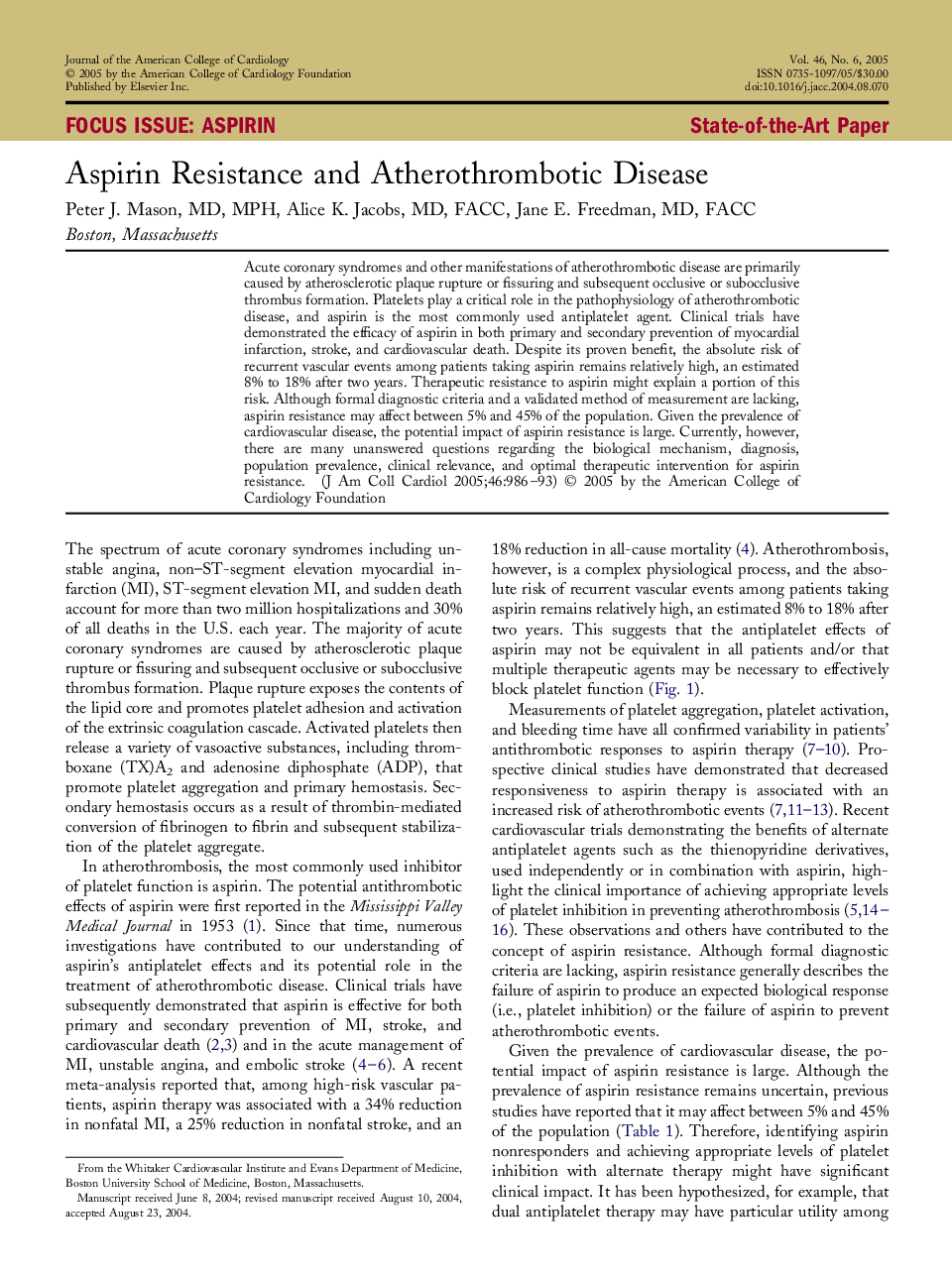| کد مقاله | کد نشریه | سال انتشار | مقاله انگلیسی | نسخه تمام متن |
|---|---|---|---|---|
| 9959728 | 1577534 | 2005 | 8 صفحه PDF | دانلود رایگان |
عنوان انگلیسی مقاله ISI
Aspirin Resistance and Atherothrombotic Disease
دانلود مقاله + سفارش ترجمه
دانلود مقاله ISI انگلیسی
رایگان برای ایرانیان
کلمات کلیدی
RPFANSAIDSCOXPGH2PGI2PFAADPadenosine diphosphate - آدنوزین دی فسفاتplatelet function analyzer - آنالیز عملکرد تست پلاکتcyclooxygenase - آنزیم سیکلواکسیژنازMyocardial infarction - آنفارکتوس میوکاردcoronary artery disease - بیماری عروق کرونرthromboxane - ترومبوکسیانNon-steroidal anti-inflammatory drugs - داروهای ضد التهابی غیر استروئیدیPursuit - دستیابیCAD - طراحی به کمک رایانه یا کَدC-reactive protein - پروتئین واکنشی سیCRP - پروتئین واکنشی سی یا سی. آر. پی Prostaglandin H2 - پروستاگلاندین H2prostaglandin - پروستاگلاندینها
موضوعات مرتبط
علوم پزشکی و سلامت
پزشکی و دندانپزشکی
کاردیولوژی و پزشکی قلب و عروق
پیش نمایش صفحه اول مقاله

چکیده انگلیسی
Acute coronary syndromes and other manifestations of atherothrombotic disease are primarily caused by atherosclerotic plaque rupture or fissuring and subsequent occlusive or subocclusive thrombus formation. Platelets play a critical role in the pathophysiology of atherothrombotic disease, and aspirin is the most commonly used antiplatelet agent. Clinical trials have demonstrated the efficacy of aspirin in both primary and secondary prevention of myocardial infarction, stroke, and cardiovascular death. Despite its proven benefit, the absolute risk of recurrent vascular events among patients taking aspirin remains relatively high, an estimated 8% to 18% after two years. Therapeutic resistance to aspirin might explain a portion of this risk. Although formal diagnostic criteria and a validated method of measurement are lacking, aspirin resistance may affect between 5% and 45% of the population. Given the prevalence of cardiovascular disease, the potential impact of aspirin resistance is large. Currently, however, there are many unanswered questions regarding the biological mechanism, diagnosis, population prevalence, clinical relevance, and optimal therapeutic intervention for aspirin resistance.
ناشر
Database: Elsevier - ScienceDirect (ساینس دایرکت)
Journal: Journal of the American College of Cardiology - Volume 46, Issue 6, 20 September 2005, Pages 986-993
Journal: Journal of the American College of Cardiology - Volume 46, Issue 6, 20 September 2005, Pages 986-993
نویسندگان
Peter J. MD, MPH, Alice K. (FACC), Jane E. (FACC),